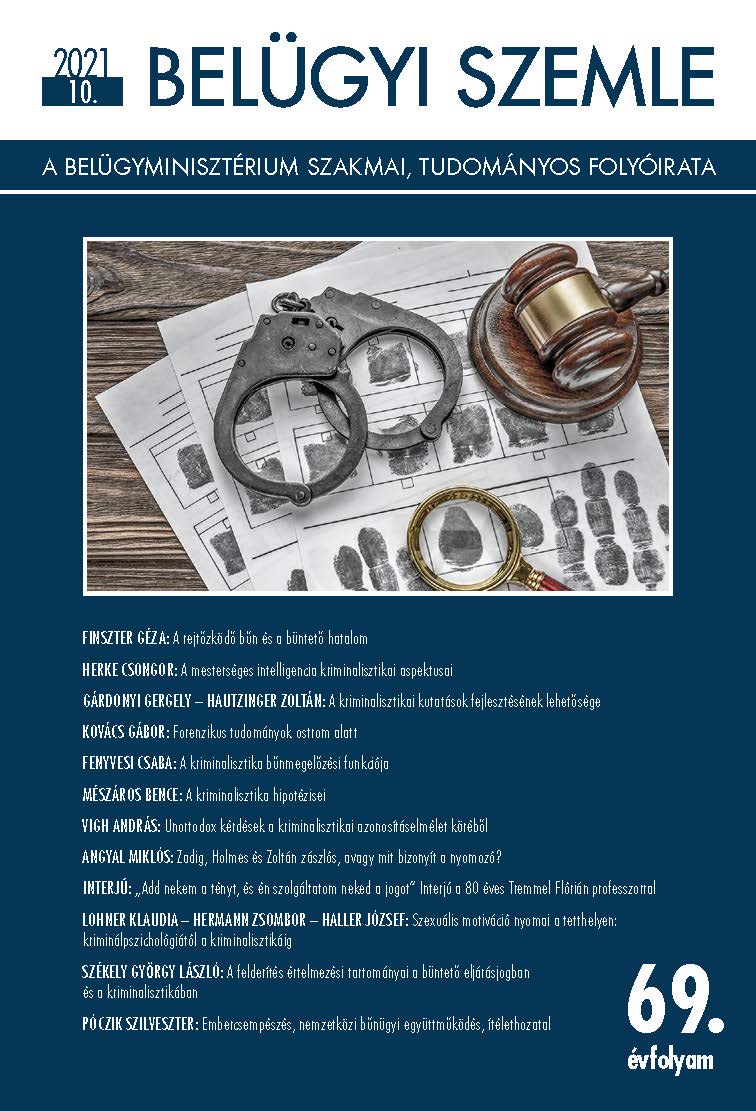Abstract
It is a reverting question in interpretation of law, whether evidence is only connected to the term trials or there are also procedural actions of investigation and impeachment periods included. I agree that the answer on this question depends first of all on the regulation system of the given criminal procedural law (Bérces, 2018). There is anyhow a common element in several procedures: the wish of getting acquainted. From this it appears that we have a false opinion on getting acquainted if we think that the role of investigation is – according to the interpretation of the effective criminal procedural law – just to gather facts and data; evidence should take place in the judicial phase. Namely human understanding can basically be connected to perception, cognition, imagination and mentality. And mentality includes also reasoning, conclusion and decision as a result of sensory and emotionally processes. A good investigator will examine by questioning and analysing in the knowledge that the final result of all his actions is to have evidences in the judicial phase available, which can clear doubts about relevant facts for the criminal law. That means, that his cognitive activity – even if it seems distantly „just” as an investigative procedure - includes numerous momentums of evidence (Tremmel, 2012). So, an adequate (and in many cases also lucky) investigation will uncover reality of the past – offering each element of that – and also confirm that, giving an opportunity that the truth of uncovering will be – practically one-to-one – the legally established truth. This paper aims to appreciate person and works of the eighty years old Professor Flórián Tremmel by historical, film and literature historical examples in connection with investigation and recognition.

